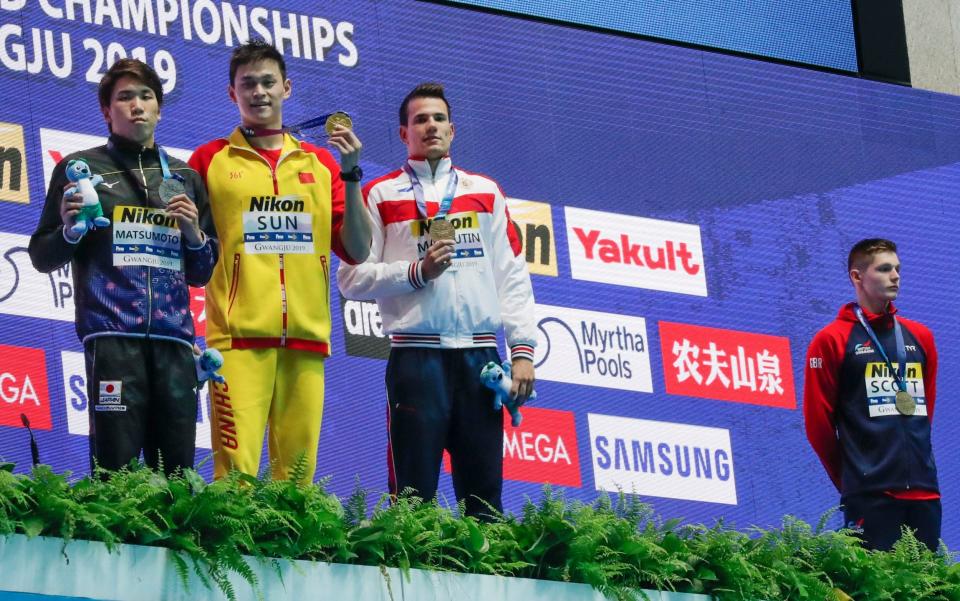British athletes will be punished if they refuse to share podium with drugs cheats at Tokyo Olympics

British medallists will be punished if they refuse to share a podium with Russian athletes or convicted drugs cheats at this summer’s Olympics.
The International Olympic Committee published guidelines on Thursday specifying the type of protests prohibited at Tokyo 2020.
They included the kind staged by Britain’s Duncan Scott at last summer’s World Aquatics Championships, in which he refused to share a podium with drug cheat Sun Yang. It prompted the Chinese to wave a finger in the Glaswegian’s face, telling him: “You’re a loser. I’m a winner.”
That will come as a relief to Russian athletes who will controversially be allowed to compete as neutrals in Tokyo despite their country’s four-year ban from world sport over its ongoing doping scandal. Athletes have long been banned by the Olympic Charter’s Rule 50 from taking a political stand in the field of play, the most iconic instance being the raised fists by American sprinters Tommie Smith and John Carlos at the 1968 Mexico City Games.
But the IOC document leaves little room for doubt about what will be allowed in Tokyo, with other prohibited protests including taking the knee – something which has swept American sports in recent years – or any hand gestures with political meaning.
Athletes will still be permitted to express political opinions in official media settings or on their social media accounts.

“We needed clarity and they wanted clarity on the rules,” said Kirsty Coventry, chair of the IOC athletes’ commission, which oversaw the new three-page document. “The majority of athletes feel it is very important that we respect each other as athletes.”
Those who break protest rules at the Games face three rounds of disciplinary action by the IOC, their sport’s governing body and a national Olympic body.
A political gesture at the 2016 Olympics went unpunished in the men’s marathon after silver medallist Feyisa Lilesa crossed his wrists at the finish line to show support with freedom-seeking protesters in his home region of Ethiopia.
“It is a fundamental principle that sport is neutral and must be separate from political, religious or any other type of interference,” the IOC document states, urging that “the focus for the field of play and related ceremonies must be on celebrating athletes’ performance”.

 Yahoo Sport
Yahoo Sport 





































